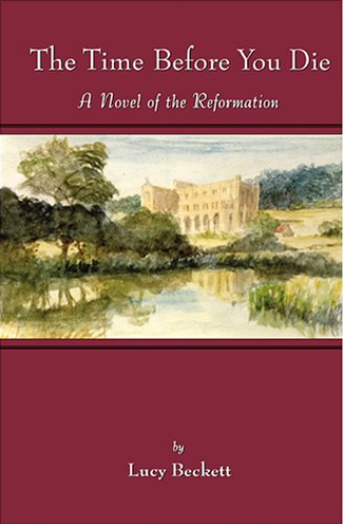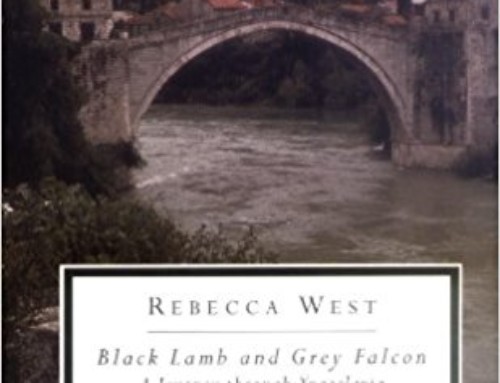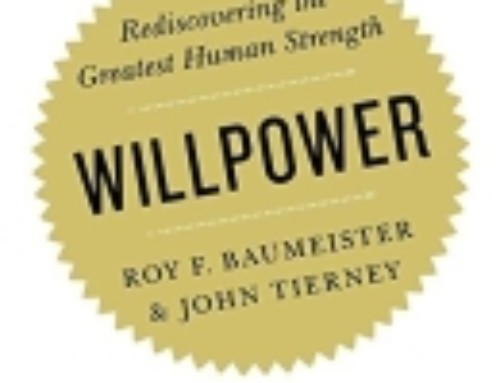Friends, this book review is reprinted here with the gracious permission of the Society of Gilbert Keith Chesterton, in whose flagship magazine, Gilbert!, this review can be found in the Jan/Feb 2021 edition. Please become a member of the Society, which I am sure you will find intellectually and spiritually fulfilling. Visit www.chesterton.org for information about GK Chesterton and his work, as well as the Chesterton society and membership.
Customs and laws.
We live by both. Few of us consider whether we are following one or the other, and if so, rarely. But it is important for us to reflect on the fragility of custom and the malleability of law. I can’t begin to count the number of times in recent years where friends tell me confidently that such and such would never happen. When one points out multiple historical examples, the response is something along the lines of, “Yeah, that was way back when people were superstitious,” or “That was then. This is now.” Yet they’re unable to explain how we got to a place where we have to jump through mental hoops to rationalize the direction in which society is going. It’s like G.K. Chesterton’s adage, “Progress should mean that we are always changing the world to fit the vision, instead we are always changing the vision.”
The cult of progress, or modernism, is something which nearly everyone will defend, even if it is something to which few privately ascribe. The notion that things and ideas recent are better than things and ideas old is one to which we naturally gravitate if for no other reason than to not have to question whether our progress is good. We certainly can agree that life without polio is better than some percentage of children stricken with the disease. We can agree that life with indoor plumbing and sanitation has improved life quality and that such a technology is an objective good.
But are there popular movements that can be questioned at the level of nuance without calling into question all progress? That ought to be a simple affirmative. Is it possible that popular movements which swept through centers of power as well as populations hundreds of years ago that are taught negatively today are recurring under different guises but with the same form once again?
Lucy Beckett’s, A Time Before You Die, gives us pause to consider that question. Subtitled, A Novel of the Reformation, one could easily skip over that title when searching for a book club choice or pandemic reading. But it is an excellent story, one that draws us to consider current events, popular support of morally questionable political policies and the obvious consequences of them.
King Henry VIII was once a staunch supporter of the universal Church and was formally named Defender of the Faith by Pope Leo X in 1521 for his Defense of the Seven Sacraments. But a king supporting the truths of a universal faith whose authority is beyond that king’s borders must rely on custom and his own self-control to avoid struggles of power within his realm. Thus, when Henry sought Church approval to break the marriage sacrament he so forcefully previously defended, it became necessary to claim authority over those very sacraments himself. So starts the slippery slope. One we are still on today. One we often forget we are on.
One morning, the king’s commissioner came to Mountgrace…without glancing at the monks in their places, read quickly through legal phrases of a document declaring, on oath, loyalty to the king’s choice of heir to the realm…”It is not for monks to meddle in these matters, but freely to signify their obedience to the king’s highness.” “If it is not for monks to meddle in these matters, why do you come here asking for oaths we are forbidden to swear?…We are here to cast off our sins, not to cast off our wits. Listen to me, all of you. We are monks, aye; we are all churchmen therefore. We are Englishmen also and dwell under the king’s law. But as churchmen we dwell under the pope’s authority, which is God’s authority here upon earth. While the king’s law is consonant with the pope’s authority, well and good. If the king proposes a law flat against a judgment of the pope has made, then it is for us to follow the pope’s judgment and do nothing that might ease the king’s path. We should refuse our oath of loyalty to this one law, not because we mean to do aught against in disobedience to it, but because it is fashioned of the king’s lawlessness. We owe this to the pope and to the Church; we owe it to England, too.”
Beckett’s book is a gripping tale, that like all good historical fiction, uses actual people and events to weave a narrative that while not specifically accurate, is nonetheless true. It tells of the forcing of English monks to swear that the king has authority over the church, then the shuttering of the Charterhouses (the monasteries and convents) and confiscation of all church lands. She offers a deeply moving narrative of monks who have known no other life, with no practical worldly skills being given pants shirt and shoes and left without shelter, jobs or income to fend for themselves. The former prior lives in a small cottage “that the commissioners have allowed him.”
What would have seemed inconceivable some number of years earlier is now reality. A former abbot lives where the state “allows” him to live. The parallels in our own modern society – of issues once considered impossible but now assuredly accepted – are countless.
The primary characters in Beckett’s novel are Robert Fletcher, a Carthusian monk-priest expelled from his monastery and the subsequent life he tries to lead as an Anglican priest, who then finds himself labeled a heretic after Henry dies and Catholicism is once again the state religion. Cardinal Reginald Pole, a real historical figure, nobleman, cousin to Queen Mary, Archbishop of Canterbury, Papal Legate to the Council of Trent, is woven into the tale as he protects Fletcher from execution for heresy by the Bishop of London. In long conversations between the two, theology and sociology are discussed, but what comes through clearly in Beckett’s prose is the reality that each person lives not in a black and white world, but a grey one. A world in which peoples’ decisions sully the truths which they claim to uphold, yet which truths are real despite their dirtying by men.
Fletcher offers to the cardinal that “the wealth of the church was going to waste that should have been the wealth of the poor.” The cardinal leaned forward in his chair. “And has it become the wealth of the poor since the abbeys were brought down, Master Fletcher? No. That sinful men make little or bad use of rules and customs, books and stones, long ago devised and built for the good of many, is no reason for casting aside the rules, burning the books and pulling down the stones. It was not that these things made sinful men; it was rather that sinful men brought these things into contempt. The disgrace should have been spared from the things and confessed by the men. And the case of the whole Church is no different.”
It is little different today. When the state takes on care of the poor and needy, those in need are not better off than they were under care of the Church. When the state “allows” an order of nuns to care for the sick and dying only as long as the nuns pay for insurance that covers abortion for their employees, the state goes down a path inconceivable some small number of years earlier. When the state tells the Church that regardless the size of the building, no more than 50 people may meet inside even under strict distancing guidelines, while allowing far more to congregate in a gym where their sweat mingles, or in a library or an “outdoor” tented restaurant, the state is telling its people clearly what it considers important and not important.
When the Governor of Virginia tells his citizens that they don’t need to gather in a church to worship on Sunday, he not only shows his lack of understanding of what a sacramental religion is, but he makes a statement of prioritization that he wants you to agree with, as Henry did with the monks. We know that the governor thinks Holy Communion is not necessary. But he doesn’t need an oath or agreement from the Church hierarchy to hold those beliefs.
When San Francisco limited church attendance to 50 people regardless the size of the building, the city’s Archbishop held 10 concurrent Masses outdoors to a sea of people both to feed their spiritual needs and to make a statement about what laws are in whose realm of authority. As time passes, it is not any specific celebration that threatens authority as much as fealty to anything other than the authority itself. Culture and the sovereign are in a constant battle for primacy and they alternate in ascendancy with each other sweeping the masses along with them.
Today some on the right decry how “Christmas is being canceled” by the secular culture. But there was a time and place where it actually was. Edward White, writing in the December 2020 Paris Review, speaks of how Christmas was officially banned in England in 1647 by the puritarian Parliament, which ordered all shops to remain open, removed Christmas from the calendars and outlawed special meals. Into the 1650s, not a church in England could be found open on Christmas day. Of course, so strong was the traditional tide after Cromwell’s fall that England gave us the Christmas traditions described by Dickens.
Be careful of what you ignore in the current culture. Be more careful what you willingly participate with or become accessory to. Once you agree with a position you find morally questionable in order to not be the mole that gets hit on the head, you set a marker of your willingness to go along to get along. We see this in authoritarian societies throughout history. People snitch on their neighbors when the entire population is enlisted in the surveillance state. Germans and Russians never could conceive that their fellow countrymen would turn on each other, but they did. Yet today, without an authoritarian government in place, people in the Western countries go along with all kinds of notions that 30 years ago would have been found to be inconceivable.
It makes you have to wonder whether critical gender theory was always correct and people were merely waiting to be liberated to believe it or whether people all seem to support it today because they feel pressured to do so. Is identity politics the end to which we have always striven for, or is it something people seem to support only to keep their contacts on social media and not be ghosted. If identity politics is real, then it seems logically difficult to build a coalition or become a part of something bigger than yourself.
When laws can be made to criminalize a belief in a position, a large segment of the population will hold it up as a objective good, a modern advancement. In many countries now, hate speech is on the books and people are tried for their positions, spoken or written. We must clearly understand that when we cede to the state or sovereign the decision of what is hate (or any subsequent derivation or natural extension of the concept, as will be inevitable), we cede to the state the future ability to alter the definition to something we no longer support. If the state can jail a person for his opinion on moral actions, the state can later jail the people who advocated for the original position when the political tide turns.
We ought to think more carefully when we make the leap from custom to law. Customs are more durable. They’re also more forgiving. England’s laws changed with the change of sovereigns. In the French Reign of Terror, people who were executing their fellow citizens early in the revolution often found themselves in the guillotine a year later for crimes that they didn’t think they committed.
Lucy Beckett’s The Time Before You Die is a worthy read. It is far more than a historical novel. It is a work which encourages self-reflection. Cardinal Pole tells Master Fletcher “I have worked ever since for the reform of the Church from within, which can be nothing else but the reform of men’s souls within her.” If we do that and encourage reform of souls, we might not need the laws.
Chesterton reminded us that “When we break the big laws, we do not get freedom, we do not even get anarchy. We get the small laws.”







Leave A Comment